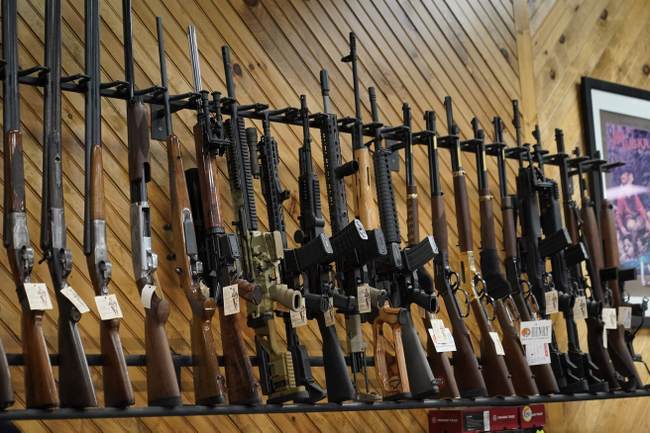
One day, my wife asked me a question. “If we were to move somewhere up north, where would you want to live?”
I didn’t hesitate to say, “New Hampshire.”
It’s not just that they have “Live free or die” on their license plates, but so much of the state really has a history of embracing it. They’re a pro-gun New England state. That’s a contradiction in terms, but it’s true. They are.
Advertisement
So yeah, it was an easy answer for me.
Unfortunately, anyone can go astray, and I personally believe New Hampshire just did.
Gun rights advocates who are usually unified on gun legislation split Thursday on a bill that would add some mental health records to gun background checks. New Hampshire is one of several states that does not report that information to the federal background database, though federal law prohibits individuals who’ve been involuntarily committed to a psychiatric facility from purchasing or possessing firearms.
House Bill 1711, brought in response to the fatal shooting of state hospital security officer Bradley Haas by a former patient in November, passed 204 to 149, with 25 Republicans joining Democrats in supporting it.
When the House took up the bill around 6 p.m., Rep. J.R. Hoell, a Dunbarton Republican whose New Hampshire Firearms Coalition worked hard to defeat the bill, moved almost immediately to table it, citing the late hour as well as concerns about unnamed unintended consequences.
Bill sponsor Rep. Terry Roy, a Deerfield Republican and Second Amendment advocate whose X profile shows him firing a long-range rifle, followed Hoell to the microphone: “Bradley Haas probably wishes he was here at six o’clock tonight.”
Lawmakers rejected two floor amendments Thursday before passing the bill.
Advertisement
It should be noted that this isn’t listed as an op-ed, yet I can’t help but notice how blatant the reporter’s bias actually is. “[U]nnamed unintended consequences,” for example?
No, the unintended consequences should be obvious.
If people are concerned that their confidential medical records might well be added to the NICS database, they’re going to be less likely to get the help that they need.
The reporter also tried to argue that the National Association for Gun Rights was wrong when they noted that a name on the prohibited list would remain there forever, arguing that the bill creates a legal process for removing one’s name, something that doesn’t exist currently.
Of course, currently it’s not needed. People who are prohibited are there because of due process and they can use that same due process to have their rights restored.
Meanwhile, people who simply concern a mental health professional may well find themselves prohibited without any such due process and be unable to get their name removed without the resources to pay for an attorney.
All in all, New Hampshire blew it.
For me, the big thing is the fact that a lot of people may well avoid getting necessary treatment because they’re concerned their mental health provider will put their records into the background check system, barring them from buying guns.
Advertisement
It’s hard enough to seek help. Far too many people are terrified to get it, afraid of what people might think or afraid of the stigma about getting treatment for their problems. How do these people benefit by giving them yet another concern about getting help? How is society benefited from something like that? How are people safer when mentally ill people don’t seek help?
They’re not, and this shouldn’t have happened.
Live free of die….unless you’re depressed. In that case, screw you.

